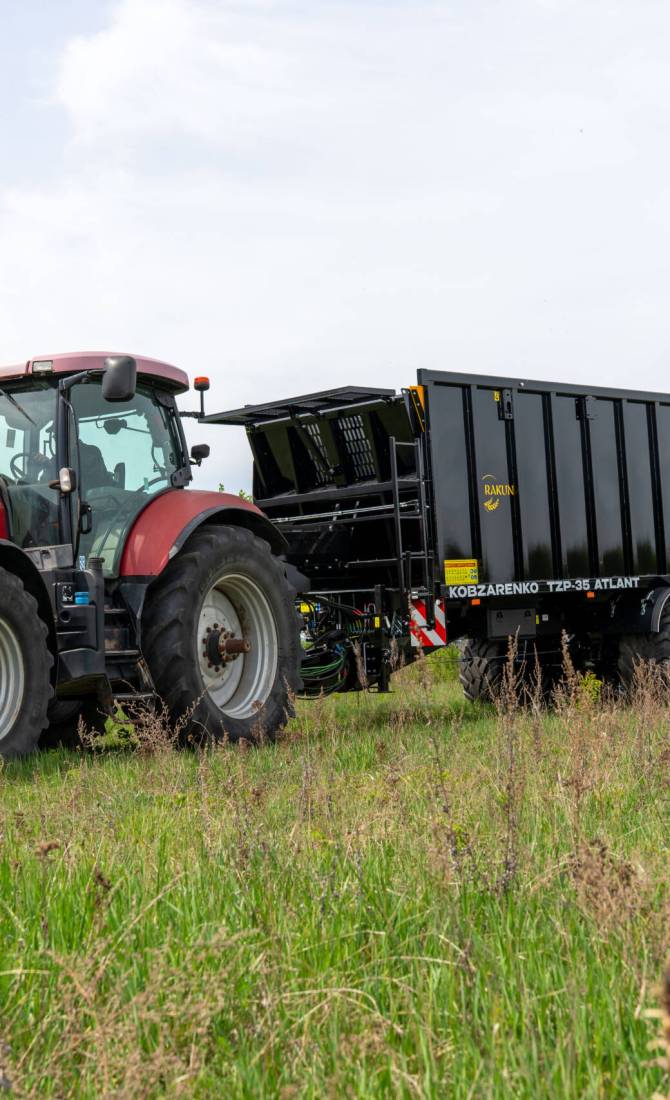Advice, fundraising under farm subsidies.

Comprehensive and reliable advice, fundraising within the framework of farm subsidies.
We provide advisory services and offer comprehensive support in obtaining funding for agricultural holdings. Our qualified team ensures professional assistance—from conducting a farm audit and identifying available subsidies, to completing the necessary documentation and submitting it to the appropriate institutions. We also support farmers during inspections.
GRANTS FOR FARMERS 2024 is a key topic for farmers who want to benefit from various forms of financial support. Below, we outline the most important aspects of subsidies for farmers, such as the types of grants available, the application process and special support programmes for agriculture.
Subsidies for farmers are an important part of financial support for those who farm. Some changes to the subsidy system are anticipated in 2024, which may affect farmers' ability to receive support.
What are subsidies for farmers?
Farmers' subsidies are various types of financial measures aimed at supporting the development of farms and improving their competitiveness. Subsidies can take the form of grants, subsidies, soft loans or other forms of financial support. Examples of farmer subsidies include direct payments, support for young farmers, subsidies for small-scale processing and processing of agricultural products or farm investments.
What changes does 2024 bring in terms of funding?
Changes to the farmer subsidy system are expected to be introduced in 2024, with the aim of increasing efficiency in the use of funds and better matching support to farmers' needs. One of the key changes is the introduction of 65% subsidies for certain forms of support. This means that farmers will be able to receive a subsidy of 65% of eligible costs, which can significantly reduce the cost of investment or project implementation.
The introduction of 65% subsidies is intended to increase the attractiveness of funding opportunities for farmers and encourage them to invest in the development of their farms. However, it's worth remembering that the subsidy amount may vary depending on the type of support and whether certain conditions are met.
The Agency for Restructuring and Modernisation of Agriculture (ARiMR) is one of the main institutions responsible for granting subsidies to farmers.
It’s important to remember that ARiMR may have its own specific requirements for funding applications, so it’s worth carefully reviewing the agency’s guidelines before submitting your application.


Types of subsidies for farmers:
- Direct payments for farmers: conditions and benefits
Direct payments for farmers are one of the most popular forms of financial support. Their aim is to equalize farmers' incomes and support them in managing their farms. The conditions for applying for these payments may vary depending on the specific form of support, but usually include owning a farm, meeting certain acreage criteria, and conducting activities in line with environmental protection principles. Direct payments help stabilize income and allow for long-term investment planning.
- Support for young farmers: the young farmer's premium. Young farmers are an important target group for financial support, as they will shape the future of agriculture. One such support instrument is the young farmer’s premium, which aims to encourage young people to run farms and support them during the start of their agricultural activities. This premium may be granted as a one-time payment or as phased support over several years.
- Grants for small-scale processing and processing of agricultural products Grants for small-scale processing are a form of financial support aimed at developing small-scale agricultural processing and the processing of agricultural products. This allows farmers to diversify their activities and increase the added value of their products. Under kpo małe przetwórstwo 2024, farmers can apply for funding for the purchase of machinery, equipment and the construction or modernisation of processing facilities. To take advantage of this support, an application for small-scale processing must be submitted to the relevant institution, such as the Agency for the Restructuring and Modernisation of Agriculture.
- On-farm investment: purchase of new agricultural machinery and farm modernisation. Investment in a farm is key to its development and to increasing production efficiency. Subsidies for the purchase of new agricultural machinery and farm modernisation can help farmers to achieve these goals. Financial support can include the purchase of modern machinery, the construction or modernisation of farm facilities, as well as the implementation of new technologies. To benefit from this type of funding, farmers must meet certain conditions and submit an application to the relevant institution.
- Special support programmes for agriculture. Within agricultural support schemes, there are specific programmes to support specific groups of farmers or areas of activity.
- Rural Development Programme: income support for farmers and farm development. The Rural Development Programme (RDP) is one of the key instruments for supporting farmers' income and farm development. It aims to improve the competitiveness of the agricultural sector, the sustainable development of rural areas and environmental protection. Under the RDP, farmers can apply for funding for various purposes, such as farm investments, infrastructure modernisation or support for young farmers. The programme is financed by European Union and national funds and is implemented at regional level.

Support for farmers' children: what are the options?
Support for farmers' children is another important element of agricultural support schemes. Its aim is to enable farmers' children to get an education and to support them in their further professional development. As part of this support, farmers' children can benefit from various forms of assistance such as scholarships, preferential student loans or training programmes. This gives the younger generation of farmers the chance to acquire the necessary knowledge and skills to run modern and competitive farms.
Organic farming and Natura 2000 areas in agriculture
Organic farming and Natura 2000 areas in agriculture are two important aspects of modern agriculture that aim to protect the environment and the sustainability of the sector. There are specific programmes within agricultural support schemes to promote these areas and to support farmers in their implementation. Funding can include support for organic farmers, investment in environmental protection or measures to conserve biodiversity. This gives farmers the opportunity to operate sustainably, which contributes to environmental protection and the quality of life in rural areas.
